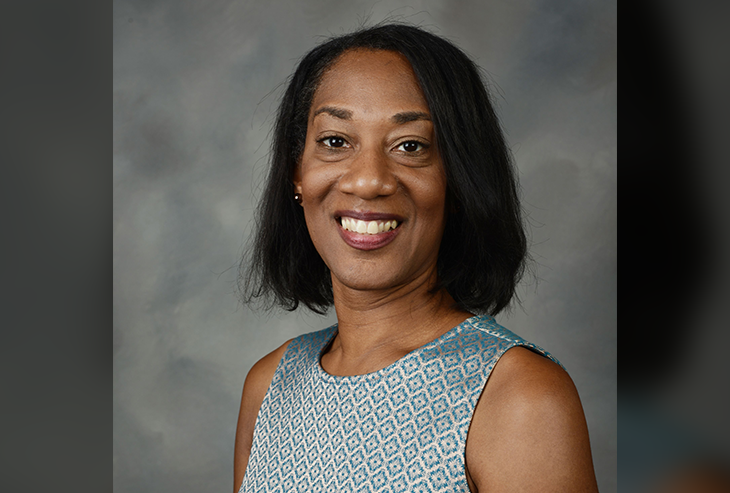In this column distributed by the Elon University Writers Syndicate, Professor Naeemah Clark looks at the challenges we have in society with equity, with a unique analogy of a left-handed student faced with a classroom mostly filled with right-handed desks. The column appeared in The Burlington Times-News and the Greenville Daily Reflector.
By Naeemah Clark
At the beginning of class, I see students come in and plop into a desk. Occasionally, one comes in and scans the room. I know he is looking for a left-handed desk. I also know he’s going to struggle more than others in the class.

It’s not that right-handed students don’t struggle keeping up with my speedy notes or don’t have to be prepared for a tough essay test, but all things being equal, righties have it a bit easier.
The right-handed students can sit anywhere so they can see the board or sit near their friends for groupwork.
The left-handed desk is usually in the back of the classroom, pushed into the corner.
Sure, lefties can move that left-handed desk, but others must move their desks to make room. It’s inconvenient.
A lefty sitting at a right-handed desk takes notes with an arm contorted over their notebook. Their pinky fingers have irksome smudges of ink by the end of the period.
A right-handed student may suffer the inconvenience of a left-handed desk for a single day, but chances are most find the right desk each day. Not so for the lefties.
What’s most amazing is right-handed people don’t think about this advantage or privilege. We righties swim in a pond made by and for us, so we don’t see the water.
It is easy to ignore the reality that the classroom is a bit more challenging for the lefties. After all, the desks were designed and placed in the room way before my class started. They work well enough.
That there is a sprinkling of lefthanded desks in most classrooms demonstrates that schools are well intentioned and interested in equality. Still, it’s less than equitable.
By now, you’ve figured out I’m not talking about dominant hands and desks.
I’ve seen many recent social media posts suggesting that talking about race in school is an ineffective solution to dismantling racism.
One post read that teaching students about white privilege or systemic racial disparities “is doing nothing but causing racism. They are teaching them that the color of their skin matters, but it doesn’t. Any student black, white, green, or purple should get the same education and should not be made to feel guilty because of that color.”
I agree that the color of a person’s skin shouldn’t matter. However, we have seen time and time again in America that Black and Brown people have disproportionately negative outcomes in areas such as maternal healthcare, education, banking, COVID deaths, accumulation of generational wealth, and homeownership.
Our race does matter.
There is a growing concern that learning about the history of racism and structural oppression is bad for the emotional well-being of all. White people shouldn’t be responsible or feel guilt for what happened in the past; Black people shouldn’t see that their skin color as a determining factor in their lives.
A recent Facebook comment stated, “I think we need to be careful projecting those sins onto today’s generation.” Another said that forcing White people to think about how they benefit from these inequitable systems is “bullying.”
Although truth can be painful, it can create opportunities for learning and inspiration.
As someone who believes robust discussion is the only way to dismantle systems of inequity, I know that thinking about race and what it means in America is foundational for creating an equitable future. The benefits outweigh temporary discomfort.
Systems and structures are large, deeply entrenched and invisible. They are also personal. Without taking an inventory of how these systems have sustained or inhibited our parents, grandparents, great-grandparents, and ourselves we can’t understand how race has been woven into American life.
Accepting that our race affects how we experience the world is just the beginning. This step allows us to be aware of the water we’re swimming in and to build empathy for those struggling to stay afloat.
That’s a sticking point. Once you acknowledge how these past systems have influenced the present, you have a choice. You can disregard it, or you can use your words and behaviors to make a more equitable future.
Choose to do something, not because you feel guilty, but because you appreciate that we are in this classroom together. The desks may have been built by and for those with right hands, but they don’t all work for everyone.
Scuttling the desks in favor of tables is equitable. They work for right-handed students, those who use wheelchairs, students with legs too long to cram under a desk, and yes, a growing population of left-handers.
Equity benefits all of us.
—
Views expressed in this column are the author’s own and not necessarily those of Elon University.



